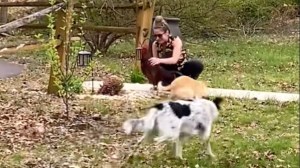A slightly bewildered Tom Scott (previously) attempted to explain the once-thought settled, ongoing linguistic debate over the correct pronunciation of GIF (Graphics Interface Format) and acknowledged that each side has reasons to believe that their side is right. Scott states that the argument over this three-letter acronym is descriptivism in its worst form and cannot be dictated, even by the guy who invented the word.
Now, one of the most fundamental principles of modern linguistics is descriptivism: there should be no value judgment about particular words or pronunciations or types of speech, there must be no Correct Way To Speak handed down from on high. We describe how people speak. If language changes, we change with it. So the Oxford English Dictionary accepts both pronunciations, despite Steve Wilhite calling them ‘Wrong…end of story.’ Turns out, even if you invented a word, you don’t get to make the call on how it’s pronounced.
Scott also explains that an individual’s pronunciation is dependent upon their own personal psycholinguistic experience.
When we read a new word, do we consider all the times we’ve seen those letters before anywhere, or do we favour ones that are in the same position? And even if we do, why do we pick one over the other? Unless you’re very young, GIF is a word that you almost certainly read before you heard. And the first time you ever saw these three letters, your brain instantly tried to match them to patterns you already knew. Gib, gift, gin, git, give. …In a split second, your brain went through everything that it knew about g-i-, decided which pronunciation you thought was right, and locked that in your head.
This thesis is further explored in an episode of the Lingthusiasm podcast by Gretchen McCulloch.
A letter stands for a sound. Or at least, it’s supposed to. Most of the time. Unless it’s C or G, which each stand for two different sounds in a whole bunch of languages. C can be soft, as in circus or acacia, or hard, as in the other C in circus or acacia. G can be hard, as in gif, or soft, as in gif.






